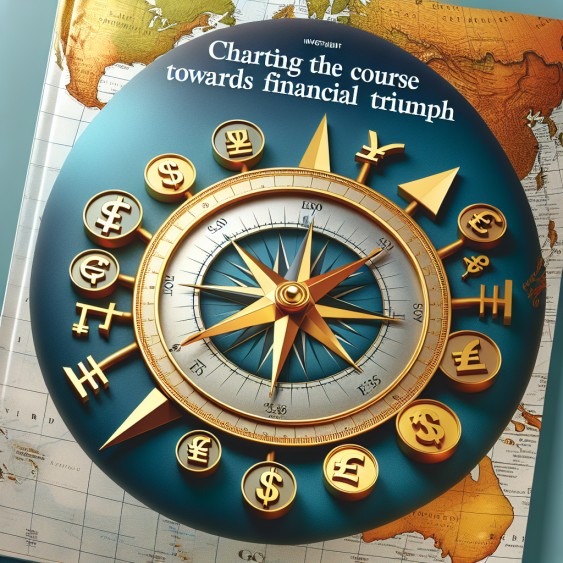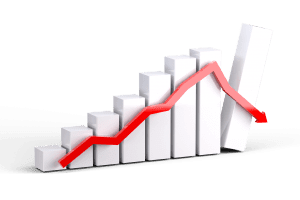
Investment Journal: The Road to Financial Success
updated March 14, 2024
Introduction: The Stoic Investor
In the words of the Stoic philosopher Seneca, “Luck is what happens when preparation meets opportunity.” For those who venture into the tumultuous world of stock market investing, no more accurate sentiment exists. The stock market, a reflection of the collective consciousness of its participants, requires more than just intellectual prowess; it demands emotional fortitude and the wisdom to discern when the preparation has indeed met opportunity. Keeping a detailed investment journal is akin to charting the course through treacherous waters, ensuring that every decision is grounded in reason rather than swayed by the upheaval of market sentiment.
The Necessity of an Investment Journal
Consider Benjamin Graham, the sage of value investing, who taught us that the market is a pendulum forever swinging between unsustainable optimism and unjustified pessimism. Here, the investment journal serves its noblest purpose: as a bastion against the onslaught of mass psychology. By meticulously documenting each trade, the investor can transcend the emotional whirlpool of fear and greed, gaining clarity and insight into their behavioural patterns, which can be exploited or amended for future prosperity.
The investment journal must not merely be a ledger of transactions; it should encapsulate the investor’s rationale, the prevailing market conditions, and the emotional state at the time of each entry. John D. Rockefeller once remarked, “The secret to success is to do the common thing uncommonly well.” In this spirit, the common practice of journaling is transformed into an extraordinary tool of self-analysis and education.
How to Craft Your Investment Chronicle
Keeping a journal should be as personalized as the investment strategy itself. The titan of industry, Andrew Carnegie, who understood the value of meticulous record-keeping in business, would likely advocate for a journal that captures the quantitative alongside the qualitative—data points, charts, technical analysis, and reflections on market news and personal intuition.
To begin:
1. Select a medium that resonates with your style, whether a leather-bound notebook or a sophisticated digital app.
2. Define the scope of your entries, ensuring you track the metrics of your trades and the external influences and internal thought processes accompanying them.
3. Commit to regular updates, for a journal untended is like a ship left adrift.
Employing Your Investment Journal as a Pedagogical Device
The investment journal transcends its primary function of record-keeping to become an invaluable pedagogical device, akin to Ralph Waldo Emerson’s enduring essays. These journals can illuminate the complexity of financial markets and the often-overlooked influence of human behaviour within them. As a mentor to fledgling investors, you can leverage your journal to impart the fundamental principles of prudent investing.
For instance, consider the Dot-com bubble of the late 1990s, an era when herd mentality prevailed, and the subsequent bust that served as a harsh lesson in the perils of following the crowd. By sharing journal entries from this period, one can demonstrate the value of scepticism when faced with rampant speculation and the importance of assessing the actual value of investments.
Encourage contrarian thinking by highlighting entries detailing successful investments against market trends. The story of Warren Buffett’s investment in American Express during the Salad Oil Scandal is a classic example. He saw an opportunity amidst temporary distress and reaped considerable gains as the company recovered.
Finally, illustrate the miracle of compounding through real-life examples, such as Anne Scheiber, a retired IRS auditor who turned a modest stock portfolio into a fortune over five decades through patient investing and reinvestment of dividends, ultimately leaving millions to charity.
By sharing these narratives and the reflections in your investment journal, you can guide the next generation to financial insight and a deeper understanding of the interplay between individual disciplines and the broader market dynamics.
The Quintessential Insight: The Dialectic of Market Cycles
The ultimate wisdom gleaned from an investment journal is the cyclical nature of markets. Just as the philosopher Hegel posited that history evolves in a dialectical process—thesis, antithesis, synthesis—so does the market cycle through exuberance, correction, and recovery phases. By documenting these cycles, investors can recognize when fear or euphoria has gripped the market and act accordingly, buying undervalued assets during times of distress (thesis) and taking profits when euphoria inflates valuations (antithesis), all the while moving towards a balanced portfolio (synthesis).
The Most Valuable Lesson from Keeping a Trading Journal
Finally, the most valuable lesson from keeping a trading journal is worth mentioning: “Buy the Crash, sell the Euphoria.” This principle is crucial for long-term success in the stock market. It means that investors should buy when the market is down and sell when it is up. Demonstrating this principle in real-time can help young investors understand the importance of taking advantage of market opportunities and avoiding emotional decisions.
In conclusion, keeping a trading journal is essential for any investor. It provides a record of an investor’s actions, helps identify trends and areas for improvement, and provides a sense of accountability. Investors can make better decisions and achieve their investment goals by reflecting on their investment decisions. So, don’t hesitate to start your journal today and embark on a journey towards
Conclusion: Embracing the Odyssey of Investing
In the grand odyssey of investing, the wisdom of the ancients and the acumen of the financial titans of yesteryear converge within the pages of an investment journal. There, the investor can chart a course through the vicissitudes of market psychology, guided by the lantern of past experiences and the compass of critical self-analysis.
Thus, we conclude with Marcus Aurelius’s reflective words: “The best revenge is to be unlike him who performed the injustice.” In our context, we interpret this to mean that the best response to the irrationality of the markets is to remain rational ourselves, equipped with the insights and lessons of our investment journal. Start your journal today, and embark on a journey not just to financial success but to self-mastery and wisdom.
Essential Readings for Navigating the Markets

Market Correction 2020; Long Term Trend Still Intact

Social Unrest And The US Dollar

Stock Buying Opportunity Courtesy Of Coronavirus

Insider Buys & The COVID Panic

Misdirection And Upcoming Trends For 2020 And Beyond

Indoctrination: Exploring the Pros, Cons, and Controversies

Dow Utilities And The Tactical Investor Dow Theory

Dow Transports Validating Higher Stock Market Prices

Global Trading Volume is Declining

Yield Curve Fears As Treasury Yield Curve Inverts
Nickel Investing: Long Term Buy?
Fiat Currency Collapse: It’s inevitable

Mind Games; Altering The Crowds Mindset
Tactical Investment Market forecast Strategy: Follow The Trend
Stock market Crash 2020 Predictions are All Based On Faulty Logic
Trading Success: From Riches to Rags and the Rise to Wealth Mogul


